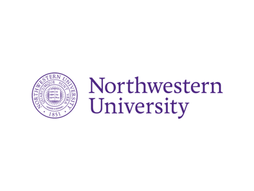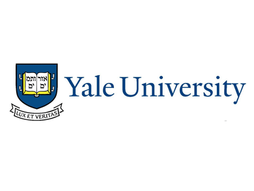12 Best Free STEM Summer Programs for High School Students
Exploring STEM through summer programs is a great way for you to gain hands-on experience, industry exposure, and college-level academic knowledge—all without the high costs that often come with other paid programs. Free STEM summer programs for high school students can offer immersive learning opportunities, helping you develop practical skills and build valuable connections with professionals and peers.
If you're passionate about a STEM subject, free STEM summer programs for high school students in provide a structured and challenging way to explore your interests. However, these opportunities vary in quality and competitiveness, ranging from moderately selective to super selective. The most sought-after programs are fully funded, highly selective, and often hosted by top universities or research institutions.
To help you find the best options, we’ve carefully narrowed down a list of the 12 best free STEM summer programs for high school students.
Location: Remote — you can participate in this program from anywhere in the world!
Application Deadline: Spring (January), Summer (May), Fall (September) and Winter (November).
Program Dates: Vary based on yearly cohort. Multiple 12-week cohorts throughout the year, including Spring, Summer, Fall, and Winter.
Eligibility: You must be currently enrolled in high school or plan to enroll as a freshman in college in the fall.
The Lumiere Research Inclusion Foundation stands as a non-profit research program tailored for gifted students from low-income backgrounds. Stemming from the Lumiere Research Scholar Program, renowned for its extensive one-on-one research opportunities for high school students, the foundation provides the same access to independent research experiences at zero cost.
The Lumiere Breakthrough Scholar Program is the equivalent of the Individual Research Scholar Program at Lumiere Education. In the flagship program, talented high-school students are paired with world-class Ph.D. mentors to work 1-on-1 on an independent research project. At the end of the 12-week program, you’ll develop an independent research paper. You can choose topics from subjects such as psychology, physics, economics, data science, computer science, engineering, chemistry, international relations, and more. You can apply here!
This program is a solid option if you are interested in interdisciplinary research and want to create an individual research paper.
Location: New York University (Manhattan, NY)
Program Dates: July 14 – August 8 (3 weeks)
Application Deadline: April 15
Program Selectivity: Medium
Eligibility: Open to 10th and 11th graders in NYC and nearby cities (Jersey City, Newark, Hempstead) with a strong interest in STEM. Priority has historically been given to female-identifying students.
CS4CS is an entry-level summer program at NYU Tandon that introduces you to the fundamentals of cybersecurity and computer science. Whether you have prior coding experience or are just starting out, this program covers key topics like ethical hacking, cryptography, steganography, digital forensics, and online privacy. Through hands-on lessons, you’ll work with software tools to detect cyber threats, analyze encrypted data, and understand how to mitigate risks like identity theft and phishing scams.
Beyond technical skills, CS4CS includes a public speaking and improvisation component through Irondale, helping you build confidence in communication—an essential skill in the cybersecurity field.
3. Veritas AI
Location: Virtual
Cost: $2,290 for the 10-week AI Scholars program | $5,400 for the 15-week AI Fellowship with Publication & Showcase | $6,900 for both. Need-based financial aid is available for AI Scholars. You can apply here.
Application deadline: On a rolling basis. Spring (January), Summer (May), Fall (September), and Winter (November).
Program dates: Multiple 12-15-week cohorts throughout the year, including spring, summer, fall, and winter.
Eligibility: Ambitious high school students located anywhere in the world. AI Fellowship applicants should either have completed the AI Scholars program or exhibit experience with AI concepts or Python.
Veritas AI, founded and run by Harvard graduate students, offers programs for high school students who are passionate about artificial intelligence. Students who are looking to get started with AI, ML, and data science would benefit from the AI Scholars program. Through this 10-session boot camp, students are introduced to the fundamentals of AI & data science and get a chance to work on real-world projects.
Location: Carnegie Mellon University (Pittsburgh, PA)
Program Dates: June 21 – August 2 (6 weeks)
Application Deadline: March 1
Program Selectivity: High
Eligibility: Open to high school sophomores and juniors from underrepresented communities.
The Summer Academy for Math and Science (SAMS) at Carnegie Mellon University is a six-week pre-college program designed to give you an immersive experience in STEM. You’ll take advanced STEM courses taught by CMU faculty, work on research projects, and collaborate with peers from diverse backgrounds. Before the in-person program, a virtual preparatory component helps you build foundational skills in mathematics, coding, and scientific inquiry.
Location: Stanford University (Stanford, CA)
Program Dates: June 9 – July 31 (8 weeks)
Application Deadline: February 22
Program Selectivity: High
Eligibility: Open to U.S. high school juniors and seniors, age 16+.
The Stanford Institutes of Medicine Summer Research Program (SIMR) is an eight-week internship for high school juniors and seniors interested in medical and biological research. You’ll work closely with Stanford faculty mentors in specialized fields such as immunology, neurobiology, cancer biology, bioengineering, cardiovascular science, and genetics. Through hands-on research in cutting-edge labs, you’ll gain practical experience and insight into real-world biomedical challenges.
For those looking for a non-lab option, the program also offers a bioengineering bootcamp, which provides an interactive introduction to bioengineering concepts without a research requirement.
Location: Texas Tech University (Lubbock, TX)
Program Dates: June 22 – August 7 (6 weeks)
Application Deadline: February 24
Program Selectivity: High
Eligibility: Open to students aged 17+ who are set to graduate this or next year (U.S. & International).
The Clark Scholars Program at Texas Tech University is a highly selective seven-week summer research experience for exceptional high school students. You’ll work closely with distinguished faculty mentors in fields such as biology, cancer research, chemistry, physics, computer science, and engineering. Alongside intensive research, the program includes weekly seminars, field trips, and discussions designed to strengthen critical thinking and professional development.
With an average SAT score in the 99th percentile, participants join a community of high-achieving scholars who are passionate about advancing their knowledge and pursuing careers in STEM.
Location: UC Irvine (Irvine, CA)
Program Dates: June – July (6 weeks)
Application Deadline: April
Program Selectivity: Moderate
Eligibility: Open to current high school students who are not graduating this spring. Middle school students are encouraged to apply in a future year, while high school seniors are not eligible.
Math ExpLR is a six-week summer program at UC Irvine that introduces you to mathematical biology research. Working in small teams, you’ll apply computational modeling and mathematical analysis to real-world biological problems. The program provides hands-on training in MATLAB programming, research presentation skills, and scientific writing.
Beyond research, you’ll attend professional development workshops that help prepare you for future academic and research opportunities.
Location: Virtual
Program Dates: July 7 – 18 and July 28 – August 8
Application Deadline: April 11
Program Selectivity: Low; Open Enrollment
Eligibility: Female and non-binary high school students.
The Summer Immersion Program (SIP) is a two-week virtual course for high school students interested in technology and game design. Sponsored by leading tech companies, the program offers hands-on instruction in computer science fundamentals, game development, and UX design. You’ll learn to create interactive digital projects while building problem-solving and collaboration skills.
Open to current 9th–11th graders, SIP also features industry networking events, guest speaker sessions, and financial aid options for eligible participants.
Location: Massachusetts Institute of Technology (Cambridge, MA)
Program Dates: June – August (6 weeks)
Application Deadline: December
Program Selectivity: Extremely High (<5%)
Eligibility: Open to high school juniors worldwide.
Hosted at the Massachusetts Institute of Technology, the Research Science Institute (RSI) is a six-week summer program that offers high school students an introduction to advanced scientific research. The program begins with a week of intensive STEM coursework led by faculty before transitioning into independent research projects under the guidance of professional scientists and engineers.
Participants gain experience in key aspects of the research process, including literature review, experimentation, and presenting their findings. RSI is fully funded, making it an accessible opportunity for students interested in high-level STEM research.
Location: Virtual
Program Dates: The program is transitioning into a two-year program and the first summer session runs from July 14 – August 8
Application Deadline: March 9
Program Selectivity: High
Eligibility: Open to high school students (U.S. & International).
The Research Training Program (RTP) at Seattle Children’s Research Institute is a two-year initiative designed to introduce high school students to biomedical research. Geared toward students from historically underrepresented backgrounds, the program begins with a four-week summer session covering laboratory skills, biochemistry, gene editing, and immunotherapy.
During the school year, participants attend monthly workshops on science communication, followed by a second summer research experience working alongside mentors in professional labs. The program provides stipends to support transportation and meals, ensuring greater accessibility to hands-on scientific training.
Location: Virtual & In-Person (Baltimore, MD)
Program Dates: June – August (8 weeks, in-person); July – August (5 weeks, virtual)
Application Deadline: March 1
Program Selectivity: High
Eligibility: Open to high school juniors and seniors. An in-person option is available for Baltimore metro area students.
The Johns Hopkins Internship in Brain Science (JHIBS) is an eight-week summer program that introduces high school juniors and seniors to neuroscience and clinical research. Participants work on mentored research projects, attend scientific seminars, and gain hands-on experience with experimental techniques.
The program is offered in both in-person and virtual formats. In-person interns have the opportunity to collaborate with Johns Hopkins neurologists during clinical rotations, while virtual participants receive structured training in fundamental neuroscience concepts and laboratory techniques. Stipends are provided for in-person interns to support their participation.
Location: Columbia University (NYC)
Program Dates: June – August (5 weeks)
Application Deadline: Applications open in October
Program Selectivity: High
Eligibility: Sophomores and juniors nominated by BRAINYAC’s partner organizations.
BRAINYAC is a summer research apprenticeship at Columbia University’s Zuckerman Institute, designed for high school students interested in neuroscience. As a participant, you will be paired with research mentors and engage in independent projects within active neuroscience labs at the Institute.
You will gain hands-on experience in experimental techniques, data analysis, and scientific communication while developing a deeper understanding of the field. The program is open to students from select schools and community organizations in Upper Manhattan and the Bronx, with a strong emphasis on mentorship and professional growth.
Stephen is one of the founders of Lumiere and a Harvard College graduate. He founded Lumiere as a PhD student at Harvard Business School. Lumiere is a selective research program where students work 1-1 with a research mentor to develop an independent research paper.









